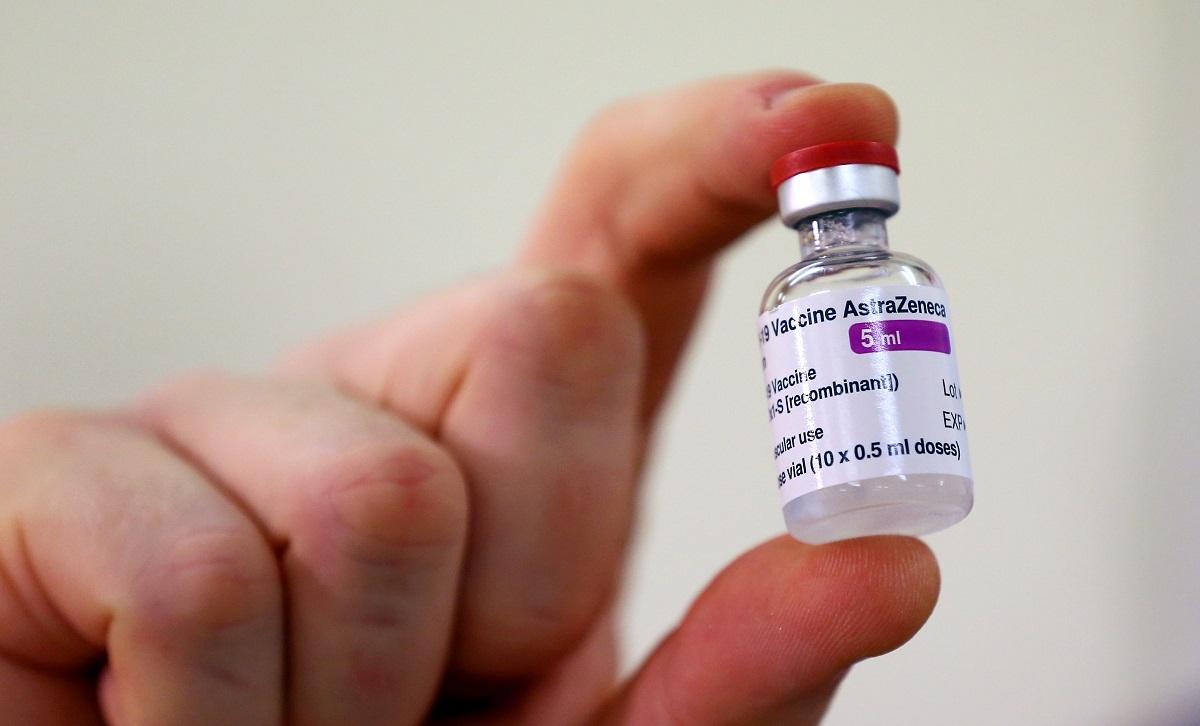Galvez: Remaining 38,400 AstraZeneca doses to arrive in the Philippines on March 7

The remaining 38,400 doses of the COVID-19 vaccine developed by Oxford University and British-Swedish pharmaceutical firm AstraZeneca are set to arrive in the Philippines on Sunday, March 7, 2021, vaccine czar Secretary Carlito Galvez Jr. announced on Saturday.
“I’d like to tell the public na ‘yung 38,400 na kulang ay darating po bukas more or less 7 p.m.,” Galvez said during the kick-off of the AstraZeneca vaccine inoculation drive at the Ospital ng Parañaque District 2.
On Thursday night, the Philippines received its first shipment of 487,200 doses of AstraZeneca vaccine from the World Health Organization-led COVAX Facility.
The vaccines are part of the supply allocated to the Philippines by the global vaccine-sharing COVAX scheme.
The vaccine czar said the World Health Organization-led COVAX facility originally committed 525,600 doses of AstraZeneca vaccine.
“[Bukas] ‘yung pangako ng COVAX na buong 525,600 ay darating na po,” Galvez said, noting that the vaccines will arrive via a commercial plane.
Senator Panfilo Lacson on Friday thanked the donors of the AstraZeneca vaccines from COVAX as well as the 600,000 doses of the Sinovac CoronaVac vaccine donated by China which arrived on Sunday, Feb. 28.
"Always grateful to China and COVAX AMC for making us see a sliver of hope to achieve herd immunity. The P2.2B daily loss in household consumption and the 9.5% economic contraction was driving the country to the edge of sanity until the Sinovac and AstraZeneca vaccines arrived," Lacson said on Twitter.
The AstraZeneca vaccine formerly known as AZD1222 was created by viral vector technique using a bioengineered version of a harmless common-cold virus found in chimpanzees to instruct human cells to make antigens.
Earlier touted as one of the frontrunners in the fight against the virus, the vaccine ran into headwinds due to a dosing discrepancy, when it was discovered that many of the United Kingdom trial subjects had inadvertently been given only about a half dose of the vaccine.
Moreover, it was later found that the regimen of a half dose followed by a full dose booster appeared to be 90% effective in preventing COVID-19, while two full doses scored 62%.
The vaccine, however, received a huge boost when it was approved for emergency use in the United Kingdom, with Prime Minister Boris Johnson touting the vaccine as a homegrown achievement.
The WHO has since approved the AstraZeneca vaccine, with the company becoming the first to join the globally-pooled vaccine arsenal COVAX.
In fact, the first wave of COVAX distribution will be almost entirely reliant on AstraZeneca. Last week, Ghana became the first nation to receive a shipment of vaccines from COVAX. The vaccines were from AstraZeneca. Its president, Nana Akufo-Addo, became the world's first recipient of a free jab from COVAX.
In the Philippines, several local government units have signed tripartite agreements with AstraZeneca and the national government for orders of the vaccine for their constituents.
The Philippine Food and Drug Administration (FDA) has granted emergency use authorization for AstraZeneca's COVID-19 vaccine last January.
In a statement, the European Union welcomed the arrival of the vaccines, saying it provided P130 billion to help 92 low- and middle-income countries, including the Philippines, gain access to COVID-19 vaccines through the COVAX facility. —KG, GMA News



